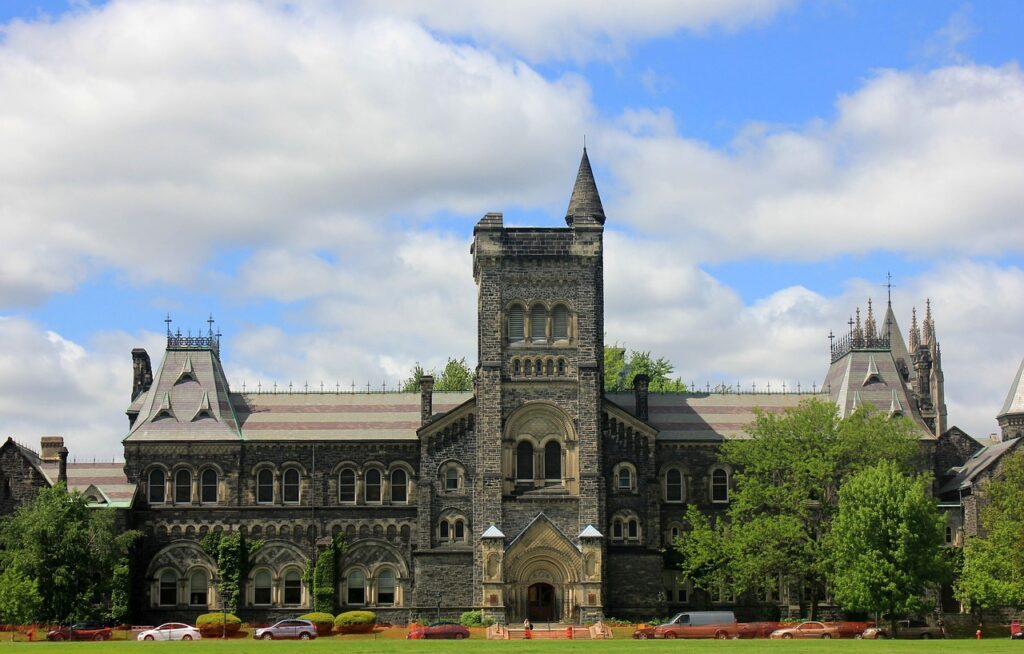National University in the United States: A Guide for Every Student 2024

In the vast landscape of higher education, the United States boasts some of the world’s most esteemed institutions. Among these are the national universities, which play a pivotal role in shaping the academic landscape and driving innovation forward. If you’re considering pursuing higher education in the U.S., understanding what national universities offer is essential. Let’s delve into what makes these institutions unique and why they’re worth considering for your educational journey.
Table of Contents
1. What Defines a National University?
2. Notable National Universities in the United States
3. Academic Programs and Diversity
4. Campus Life and Student Experience
5. Research Opportunities
6. Alumni Networks and Career Support
7. Admission Requirements and Selectivity
8. Financial Aid and Scholarships
9. Challenges and Considerations
10. Conclusion
11. FAQs
What Defines a National University?
National universities are distinguished by their comprehensive range of undergraduate, graduate, and doctoral programs. Unlike liberal arts colleges, which primarily focus on undergraduate education, national universities often emphasize research alongside teaching. These institutions typically have large student populations and extensive facilities to support diverse academic pursuits.
Notable National Universities in the United States
Harvard University, Stanford University, Massachusetts Institute of Technology (MIT), and Princeton University are among the top-ranking national universities in the U.S. These institutions consistently excel in various fields and attract students from across the globe.
Academic Programs and Diversity
National universities offer a wide array of academic programs spanning various disciplines. Whether you’re interested in engineering, humanities, business, or the sciences, you’ll find diverse opportunities to explore your interests and pursue your passions. Additionally, these institutions often prioritize diversity and strive to create inclusive learning environments that foster collaboration and understanding among students from different backgrounds.
Campus Life and Student Experience
Beyond academics, national universities offer vibrant campus life experiences. From student clubs and organizations to cultural events and athletic competitions, there’s always something happening on campus. Engaging in extracurricular activities allows students to develop leadership skills, form lasting friendships, and create memories that extend beyond the classroom.
Research Opportunities
One of the defining features of national universities is their commitment to cutting-edge research. Students have the opportunity to work alongside esteemed faculty members on groundbreaking projects that contribute to advancements in their respective fields. Engaging in research not only enhances academic learning but also prepares students for future careers in academia, industry, and beyond.
Alumni Networks and Career Support
The alumni networks of national universities are extensive and influential. Graduates of these institutions often go on to achieve great success in their careers and maintain strong connections with their alma maters. Moreover, national universities provide robust career support services, including internships, job fairs, and networking events, to help students transition smoothly from academia to the workforce.
Admission Requirements and Selectivity
Securing admission to a national university is highly competitive. Applicants are evaluated based on a combination of academic achievement, extracurricular involvement, standardized test scores, and personal essays. While selectivity varies among institutions, all national universities seek to admit students who demonstrate exceptional potential for academic and personal growth.
Financial Aid and Scholarships
Despite their prestige, national universities are committed to making education accessible to all qualified students. Financial aid packages, including grants, scholarships, and loans, are available to help offset the cost of tuition and living expenses. Additionally, many national universities offer merit-based scholarships to recognize and support outstanding academic achievement.
Challenges and Considerations
While attending a national university offers numerous benefits, it’s essential to consider potential challenges. These may include rigorous academic requirements, intense competition, and the high cost of attendance. Additionally, navigating large campuses and adjusting to a fast-paced academic environment can be daunting for some students. However, with determination and support, many students thrive and succeed in the vibrant community of a national university.
Conclusion
In conclusion, national universities in the United States offer unparalleled opportunities for academic and personal growth. From world-class faculty to diverse academic programs and vibrant campus life, these institutions provide a rich and rewarding educational experience. Whether you aspire to conduct groundbreaking research, pursue a career in a competitive field, or simply expand your horizons, attending a national university can be a transformative journey that shapes your future in profound ways.
FAQs
What are the benefits of attending a national university in the United States?
Attending a national university offers numerous benefits, including access to top-tier academic programs, extensive research opportunities, vibrant campus life experiences, and robust alumni networks that can facilitate career advancement.
How competitive is the admissions process for national universities?
The admissions process for national universities is highly competitive, with acceptance rates often below 10%. Applicants are evaluated based on academic achievement, extracurricular involvement, standardized test scores, and personal essays.
Are financial aid and scholarships available for students attending national universities?
Yes, national universities offer a variety of financial aid options, including grants, scholarships, and loans, to help offset the cost of tuition and living expenses. Many institutions also provide merit-based scholarships to recognize outstanding academic achievement.
What challenges might students face at national universities?
Some challenges students may face at national universities include rigorous academic requirements, intense competition, the high cost of attendance, and adjusting to a fast-paced academic environment. However, with support and determination, many students successfully navigate these challenges and thrive.
How can students make the most of their experience at a national university?
To make the most of their experience at a national university, students are encouraged to actively participate in campus life, engage in research and extracurricular activities, seek mentorship from faculty members and alumni, and take advantage of available resources for academic and personal development.
More Education Blogs – Click Here
More Insurance Blogs – Click Here





Leave a Reply